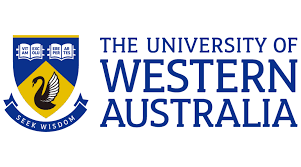University of Western Australia: New Forrest scholars to tackle global environmental challenges
A scientist looking to develop technology that can degrade micro-plastic particles, and another focused on assessing the role of kelp in the global carbon cycle, have been awarded Forrest Scholarships to further their research at The University of Western Australia.
Microbiologist Anna Faber from Germany has joined the UWA School of Molecular Sciences as she seeks to identify, isolate and develop enzymes that can break down plastic, a novel biological treatment technology which it’s hoped will ultimately be used to reduce plastic debris in the environment.
Ms Faber will collaborate with the UWA Oceans Institute to identify marine micro-plastics hotspots in the nearshore and estuarine waters of Perth, screening for microbial plastic degraders and its genomes.
“The growing amount of durable plastic waste across the world’s oceans endangers the health and well-being of humans and marine ecosystems, calling for innovative approaches for plastic recycling and remediation,” Ms Faber said.
“My synthetic biology and biotechnology research will contribute to identify bio-based processes that enable plastic degradation and recycling with the help of bacteria.
“My aim is to identify bacterial enzymes that can chew up plastic, to produce them in the lab, and to increase the plastic degradation potential via protein engineering. I plan to work with industry partners to apply our research results, leading to a positive impact on environmental plastic pollution.”
German marine ecologist Luka Seamus Wright is working with the UWA School of Biological Sciences as he researches the role kelp plays in locking away carbon dioxide and how that is affected by the rate of decomposition of the giant algae.
“Besides providing habitat and food for marine species, it’s thought that kelp ecosystem services include ocean-based carbon dioxide removal and sequestration,” Mr Wright said.
“So far, we have a good understanding of carbon assimilation and export from this macroalgae but not so much of what happens to that carbon after it leaves the forest. Only one study has so far quantified the burial of macroalgal carbon in situ.
“Because this study was conducted in the Northeast Atlantic, there’s no knowledge on the contribution of other forests, such as austral Ecklonia radiata, more commonly known as spiny kelp, to sediment carbon stocks.”
Mr Wright said the aim of his research was to answer three questions. Where does the majority of kelp carbon go after it leaves the forest? Is there burial of kelp-derived carbon in offshore deposits? And does this potential sequestration vary with local forest health?
“Although kelp forests have in part been degraded by climate change and other impacts such as nutrient pollution, if adequately restored, they may have the potential to substantially recover by 2050,” he said.
“Therefore, kelp forests are an integral part of fulfilling international policy in the coming decade of ocean science and ecosystem restoration.”
Ms Faber and Mr Wright have joined two other scholarship recipients who are studying at Curtin University.
The scholarships are made possible through the Forrest Research Foundation, which aims to attract the brightest minds to conduct research in Western Australia.

